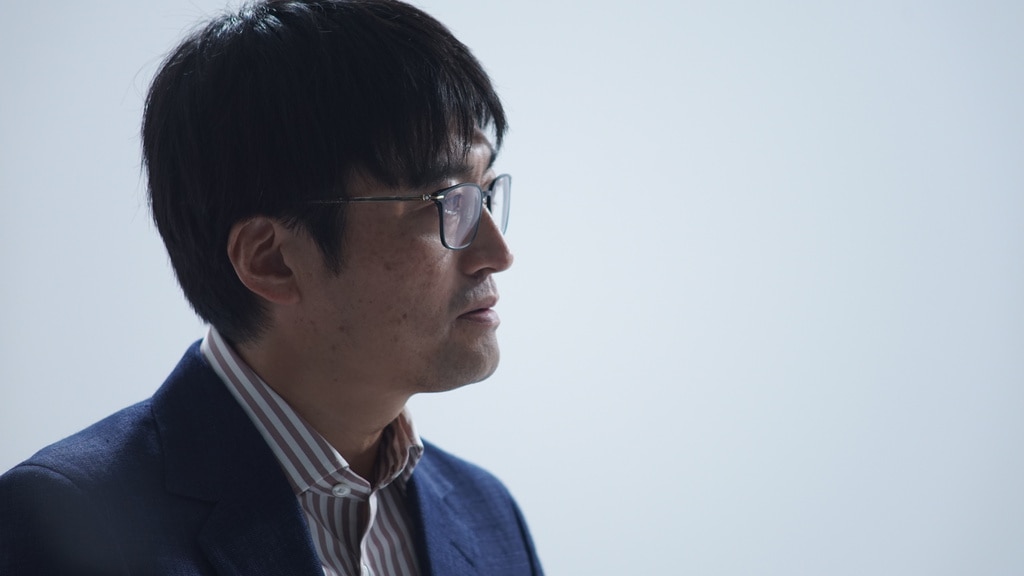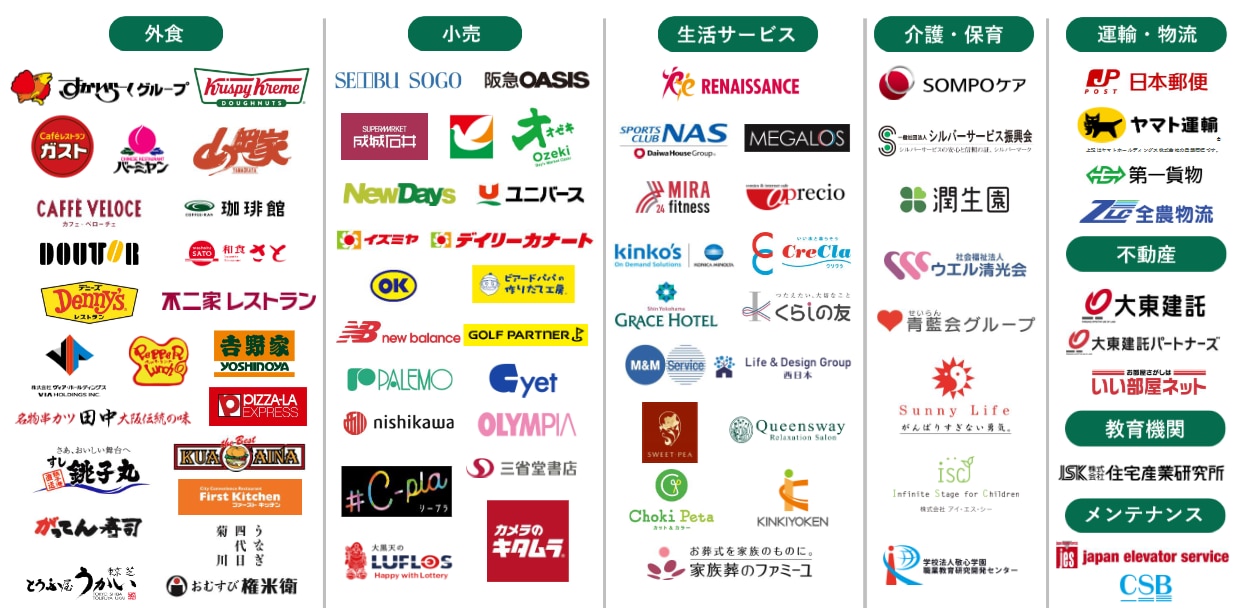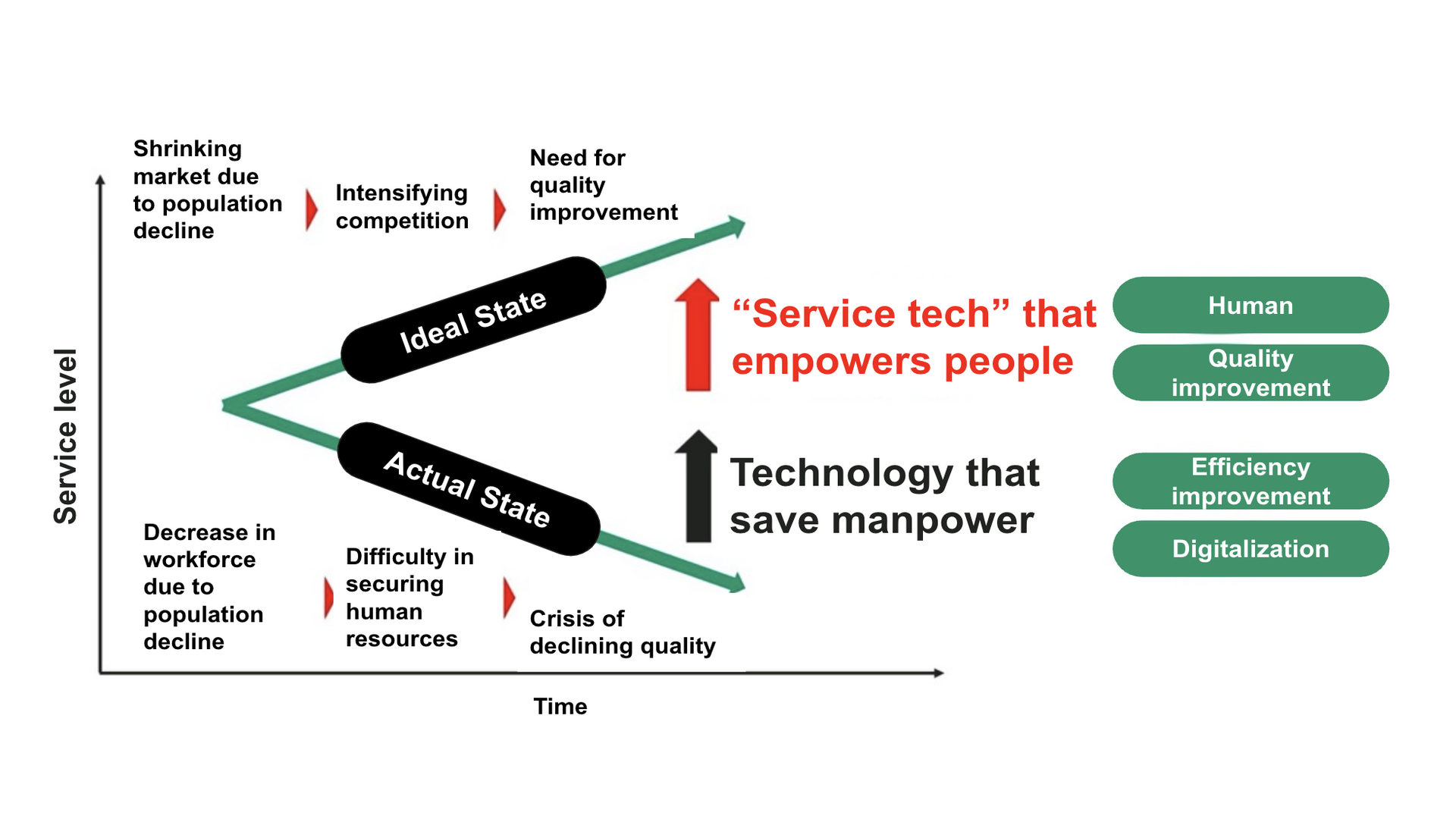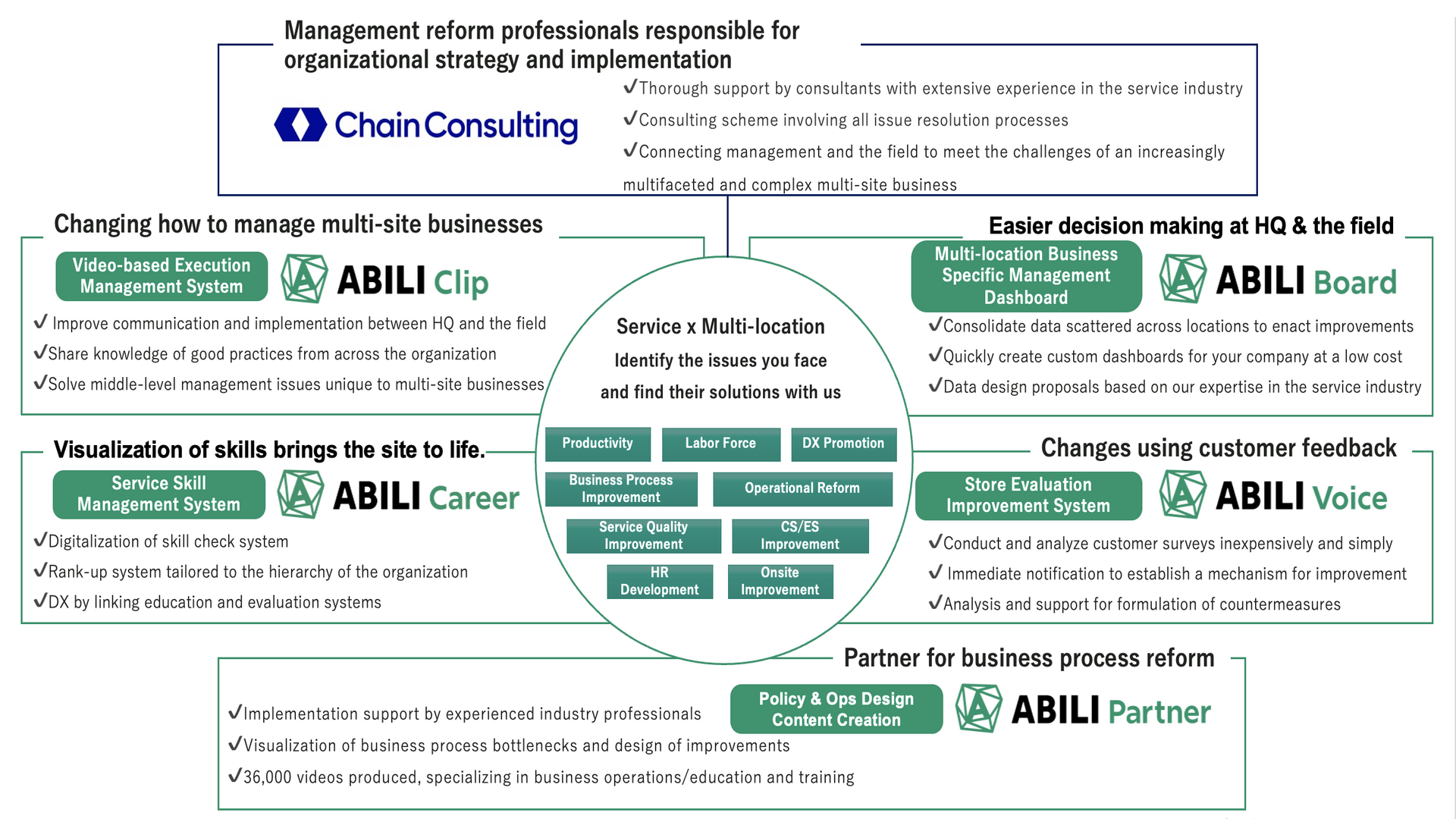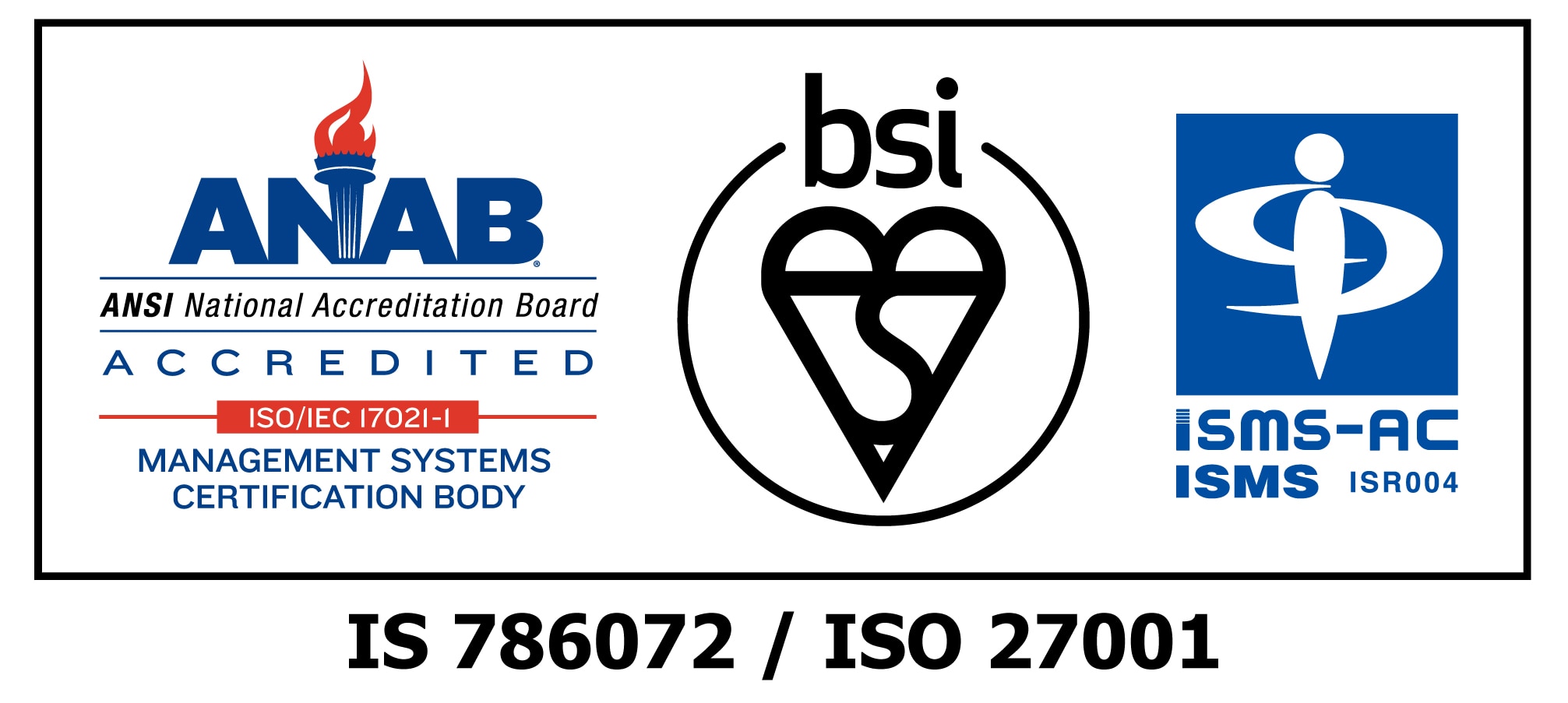ClipLine, Inc. has focused on "execution support" for multi-location businesses, particularly in the service industry, and has worked hard to solve industry-specific issues by utilizing short videos. For example, in the service industry, the first month is critical. By using our services to train new employees, we have been able to demonstrate the effectiveness of our platform in retaining and motivating staff.
一方で、多くのお客様をご支援していく中で、従来のサービスだけでなく、各店舗や拠点が持続的成長を実現するためのより包括的な支援が求められていることがわかりました。
そうしたニーズにお応えすべく、2023年9月に新ブランド「ABILI」を立ち上げ、サービス業が抱える課題の可視化から実行解決を一気通貫で支援する体制を構築してきました。
点在する課題やノウハウを可視化し、店舗や拠点ごとのバラつきを解消しながら、強い現場を作り上げる。
リブランディングは、ABILIの製品群を活用し利益向上に貢献するパートナーとしてのあり方をより強固にするものであり、現在ではサービス業の皆様を中心に、70万人以上(※2025年7月現在)にご利用いただいています。
We define the service industry not in terms of industry categories, but rather as "any type of business in which people intervene to provide value in the form of products/services". It includes not only general food service, retail, and lifestyle service industries, but also transportation and logistics, nursing care and childcare, and maintenance.
The environment surrounding the service industry has changed dramatically over the past several years. The key words are "inflation and yen depreciation," "labor shortage," and "technology.
Around 2021-2022, the combination of increased demand and supply constraints accelerated the surge in energy and raw material prices. In addition, the interest rate difference between Japan and the U.S. continued to widen during that period, resulting in a double punch of inflation and yen depreciation hitting the service industry. In order to respond to these changes, it is essential to review operations and strategies throughout the service industry. The service industry is required to change its business model, including strengthening digital transformation and efficiency improvement efforts.
Another perennial issue is the declining birthrate and aging population; by 2025, one in four of Japan's population will be elderly, and as a result, concerns about a shrinking workforce are increasing year by year.
This "labor shortage" challenge has a major impact on the service industry. Issues such as difficulty in hiring and turnover have already become apparent, and it is estimated that the difficulty in solving such issues will become even greater in the future. A future in which stores that used to be operated by 10 people will have to be operated by 6-7 people may be just around the corner.
Under such circumstances, the evolution of technology is brightly illuminating the future of the service industry. Not only are mobile ordering and tablet ordering improving operational efficiency, but robots are also being used to serve customers. For some businesses the reduction of manpower for tasks that do not inherently require human intervention has advanced rapidly over the past few years. This is partly due to the impact of the new coronavirus.
However, we believe that technology alone cannot enhance the intrinsic value of the service industry. The essential value of the service industry is "the creation of added value through the delivery of products and services by human hands.
Technology that reduces the number of human resources, which is now becoming more prevalent, will not be enough to increase the value of services that can only be achieved through people.
In a future where labor shortages and technology will continue to develop further, we believe that "technology that utilizes and empowers people involved in the service industry" is important. We have defined this as "Service Tech".
